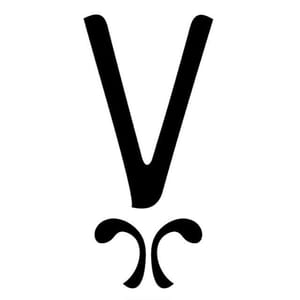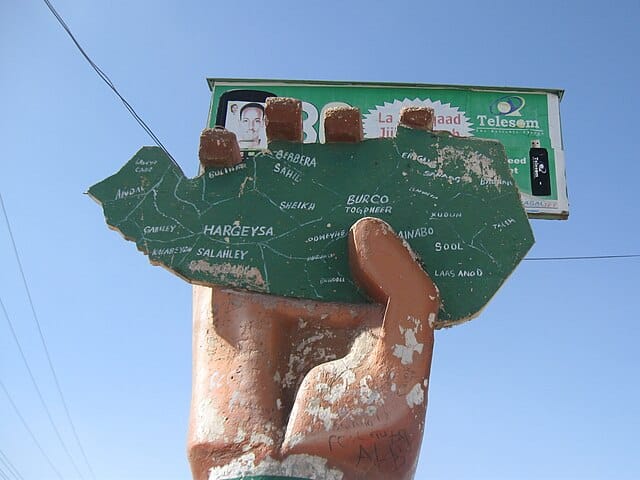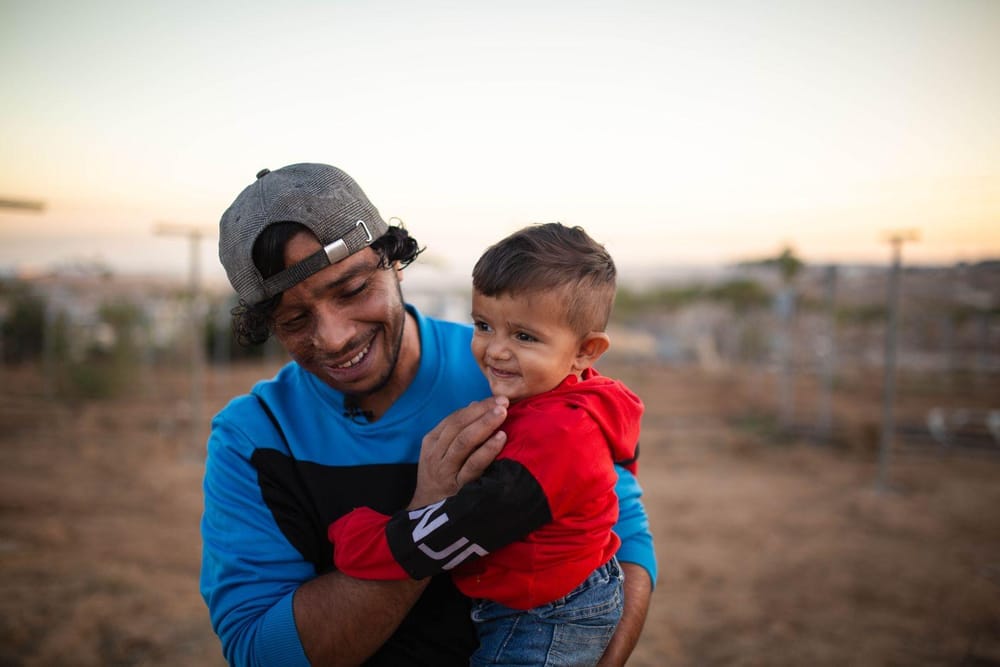
We had hoped the return of the Pickle would be a moment to celebrate the announcement of Vashti’s new, 13-strong editorial collective, but that will be for another day.
Instead, this afternoon we join Palestinians, Israelis, and readers around the globe in immense grief over the mass loss of life in Palestine-Israel. This grief extends beyond Saturday’s initial waves of killing, bombardments, airstrikes, and raids, towards the uncertain future they suggest. One where the spectre of horrific violence looms large, particularly in Gaza and the occupied West Bank.
The attack launched by Hamas on southern Israel has affected many of us personally, with friends and family directly impacted by the assault. So too has the Israeli siege of Gaza.
Amid our grief, we also feel anger. Anger at suggestions that this outcome was unprovoked or inevitable. Anger at Islamophobic and bloodthirsty messages from elected officials and publications claiming to speak for the Jewish community.
It is from this place of deep turmoil that we write to you today, offering an alternative message – one that we hope will resonate and that we know can be difficult to find.
Often, mainstream reporting on Palestine services uncritical support for the Israeli state, by shying away from the realities of occupation, and the Nakba which began 75 years ago but continues to this day – as Hamza Ali Shah’s Pickle article published earlier this year reminds us. This lockstep support for Israel has led us to an appalling reality, one where Israel can blithely commit the war crime of collective punishment against Gazans with the approval of most Western governments. At Vashti, our goal is to amplify a rupture from this supposed mainstream, to show the deep and abiding support for Palestinian liberation that exists across Jewish communities in Britain.
In this week’s Pickle, a number of our editors showcase the coverage we have been turning to at this moment. We have a diverse editorial collective, with a range of opinions, and our round-up strives to provide a microcosm of this multiplicity of thoughts, feelings, hopes and fears.
However, one principle has guided all our selections, as the underlying ethos of our publication: all human life is precious, equal, and worthy of freedom from oppression. The only path that upholds this principle in the land from the river to the sea is the end of Israeli occupation and apartheid▼
Coverage we’ve been turning to
On-the-ground reporting
Photos: War in Israel and Gaza – Nicole Werbeck, Grace Widyatmadja, Aya Batrawy, Peter Kenyon, Estefania Mitre, NPR (Warning: This report contains graphic and distressing images. Viewer discretion is advised.)
Amid contradictory pleas on social media – some baffled by and calling for the cessation of the circulation of unsolicited images of violence, and some imploring others to continue sharing in the hope of spreading awareness – photographs remain a vital means of documentation. With the necessary (and too often foregone) warning that this report contains graphic and distressing images, we share this photographic timeline of the last six days. – Asha
Gaza shatters the facade of ‘calm’ – Mohammed R. Mhawish, +972 Magazine
What does it mean for there to be ‘calm’ under conditions of occupation? Palestinian journalist Mohammed R. Mhawish is clear that the idea of ‘calm’ does not exist in Palestine. Instead, he argues that the stability of the Israeli state is conditioned on the brutal suppression of the Palestinian people, with the root cause of the violence we are seeing this week in the war that Israel has waged against Palestine since 1948. The current moment, he writes, is a ‘culmination of years of suffering and despair,’ when ‘Palestinians, driven to the brink, finally respond to the unrelenting pressure.’ Where people are starved, imprisoned, and brutalised, they will clamour for liberation. Palestine needs our solidarity now as much as ever. – Kendall
In Gaza, ‘we hate the night for what Israel does to us’ – Ruwaida Amer, Al Jazeera
As of our writing, more than 1,350 people have been killed in Gaza and over 1,300 in Israel. Now, 300,000 Israeli troops have reportedly been mobilised in likely preparation for a ground invasion.
Gazans remain trapped in a nightmare of destruction wrought by Israel as collective punishment for last Saturday’s attack. The UN reports that over 650,000 Gazans face severe water shortages, while food supplies are expected to run out in days. There is no mains electricity, the primary telecommunications buildings have been bombed, and internet access is partially down. Gaza’s only power plant has now run out of fuel, resulting in a blackout throughout the Strip and leaving hospitals dependent on short-term generators to keep dialysis patients and newborns alive. Medical facilities are at the verge of collapse as hospitals are overcrowded, medications dwindle, and ambulances are attacked. Full neighbourhoods have been levelled and schools are being bombed. There is nowhere to seek safety and no way to bring in urgent supplies. Somehow, the worst seems yet to come.
Palestinian filmmaker Ruwaide Amer narrates the first day in Gaza after the Hamas attack. Moving between unfolding events and her memories from a life shaped by war, displacement, and death, Amer describes a Saturday that was at once shockingly new and horrifyingly familiar. Following a day of bombing that levelled homes and left few places for refuge, she explains that life under Israeli assault becomes hardest once the sun goes down. ‘Whole families stay in one room so they can survive together or die together,’ she writes. ‘It’s a difficult thought to process, but this is what we feel in Gaza, especially during the nights.’
The death and destruction has only escalated since these first hours and it is increasingly difficult to remain in touch with those on the ground. We have a duty to seek out and amplify the experiences of Palestinians living this horror so that Israel’s siege does not successfully silence Gaza. – Evan
Analysis
This Gaza war didn’t come out of nowhere – Jonathan Guyer, Vox
From the Trump presidency onwards, major Western powers have prioritised ‘normalisation’ between Israel and the Arab and Muslim world as the officially-sanctioned path to regional peace. Amid the fanfare of the Abraham Accords’ promise of economic and security cooperation with Saudi Arabia, the UAE and others, however, Palestinian aspirations for freedom, dignity and basic survival were effectively excluded from the foreign policy agenda.
In his explainer for Vox, Jonathan Guyer argues that this cynical, transactional approach was proved complacent and naive in the wake of the recent tragic violence, placing political pressure on Palestinians without offering productive, non-violent diplomatic avenues through which to respond. How can policymakers learn from these mistakes? Here, he quotes Israeli journalist Haggai Mattar: ‘The only solution, as it has always been, is to bring an end of apartheid, occupation, and siege, and promote a future based on justice and equality for all of us. It is not in spite of the horror that we have to change course – it is exactly because of it.’ – Matt
Israel’s militarized approach to Gaza brought us here. It’s bound to keep failing – Yousef Munayyer, Foreign Policy via Slate
In the aftermath of Hamas’s atrocities in southern Israel, the Israeli government has treated violent retribution and collective punishment against Palestinians as a fait accompli, with its foreign allies providing a tacit green light to the bombing campaign in Gaza that has already begun. Rather than confront the ramifications of its own increasingly extreme rightward turn and complicity in exacerbating inter-religious division, the Netanyahu administration is doubling down. As Yousef Munayyer argues, this attitude is both dangerous, engendering a rhetoric of dehumanisation and even genocidal intent towards Palestinians within prominent areas of Israeli discourse, and futile, representing a return to the militarised approach that got us here in the first place.
This time we could be witnessing the beginning of a campaign of ethnic cleansing on a scale not experienced since the Nakba. Those of us horrified and outraged by Hamas’s actions are equally compelled to muster the courage to disrupt these cyclical, Manichean logics of violence, and instead rally behind those forces pushing for lasting peace based on freedom, equality and safety for all. – Matt
Opinion
Despite what you think, Palestinians are not celebrating death – Hebh Jamal, Mondoweiss
‘I do not rejoice over death. I rejoice over the possibility to live.’ This is the powerful message from Palestinian American journalist Hebh Jamal.
Originally published in her newsletter the Diaspora Journal, this excellent essay unveils the emotional complexity of Saturday’s offensive. In the last few days we have seen journalists, public officials, and the world writ large demand Palestinian statements of public condemnation as a precondition for sympathy, much less solidarity. Jamal’s piece reveals the futility behind this type of reaction and allows space for joy at the prospect of Palestinian liberation, albeit a joy intermixed with sorrow and fear. Jamal clarifies that joy in occupied Palestine has always been qualified by the violence enmeshed in the fabric of everyday life. To condemn this violence now and only now is to play into the hands of the settler imaginary, where violence from the colonised is atrocity, but violence against them is necessary. – Kendall
In Gaza and Israel, side with the child over the gun – Naomi Klein, The Guardian
Author Naomi Klein pens a response to her ‘supposed comrades on the left’ who she has witnessed minimise or even celebrate Israeli civilian deaths. Many of us have unfortunately witnessed the sentiments Klein describes from people we have similarly called co-organisers and friends. While she returned with edits to the piece, clarifying that ‘many leading figures on the anti-colonial left, in Palestine and outside of it, clearly denounced the targeting of civilians,’ her warning stands. Writing as a non-Zionist Jew, she argues that this callousness in the face of innocent human suffering is both a wrong in itself and a ‘gift to militant Zionism.’ She explains why the moral inconsistency found in some left factions can be experienced as antisemitism, but also leaves readers with hope of a humanistic future for the left. Klein shares both her personal grief and her dream of one day being part of ‘An international left rooted in values that side with the child over the gun every single time, no matter whose gun and no matter whose child.’ – Asha
Israel-Palestine war: Britain’s epidemic of unchallenged anti-Palestinian racism – Peter Oborne and Imran Mulla, Middle East Eye
Imran Ulla and Peter Oborne provide an overview of the unsurprising anti-Palestinian and Islamophobic British response to the war. From the horrific comments of a Jewish Chronicle editor, to a prominent Cambridge professor linked to Christian nationalists labelling a Free Palestine march ‘morally abhorrent’, to Prime Minister Rishi Sunak’s uncritical and unequivocal support for Israel, mainstream British voices are escalating tension at home and abroad.
Since this article was published on 10 October, Home Secretary Suella Braverman has reportedly ordered a clampdown on pro-Palestinian expression. It is now at the discretion of police forces to determine whether flags, chants, and signs qualify as a public order offence and merit repression, inching towards the same ban on Palestinian flags and expression instituted by Israel’s fascist national security minister, Itamar Ben-Gvir. In the case of the Met (but surely other forces as well), this decision gives licence to an institutionally racist and violent police force to target people of colour and activists with even greater impunity than they had before. This is a police force with no capacity for nuance and no particular interest in the genuine safety of the Jews in this country.
Let’s be clear: an expression of solidarity with the Palestinian people is not antisemitic and must not be a crime. The desire to see Palestinians liberated from occupiers in their own lands is not antisemitic and must not be a crime. The Palestinian flag should in no way be paralleled to a swastika, as Braverman reportedly did in her instructions.
To say this is not to compromise on the safety of Jews in Britain. It is to push back on the dangerous Israeli narrative that all Jews are tied to Israel and are Zionists. And it is to ensure that essential pathways for communication, coexistence, and solidarity remain open between communities in this devastating, crucial moment. – Evan ▼
Author

This article was produced by the editorial collective at Vashti.
Sign up for The Pickle and New, From Vashti.
Stay up to date with Vashti.



